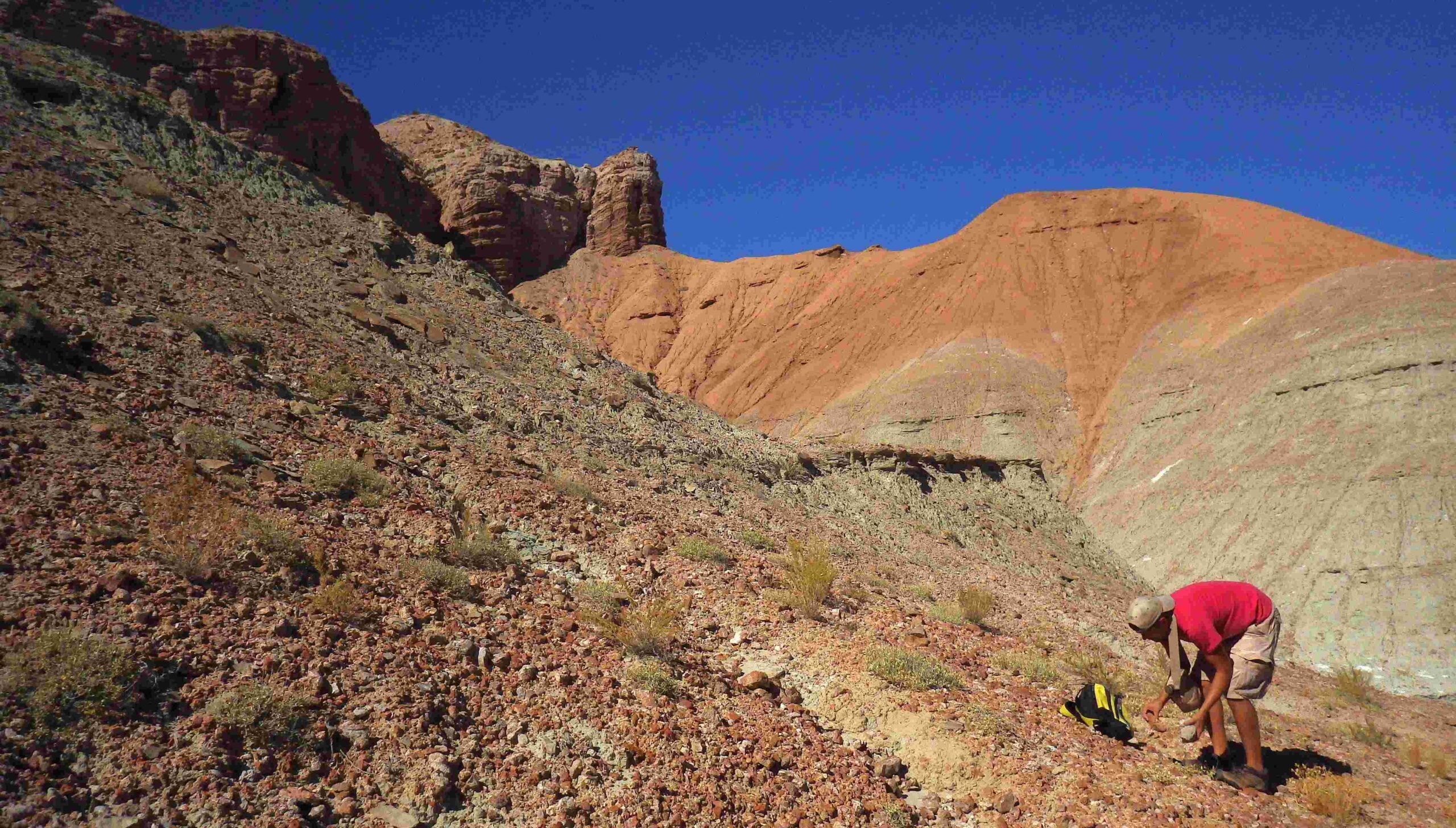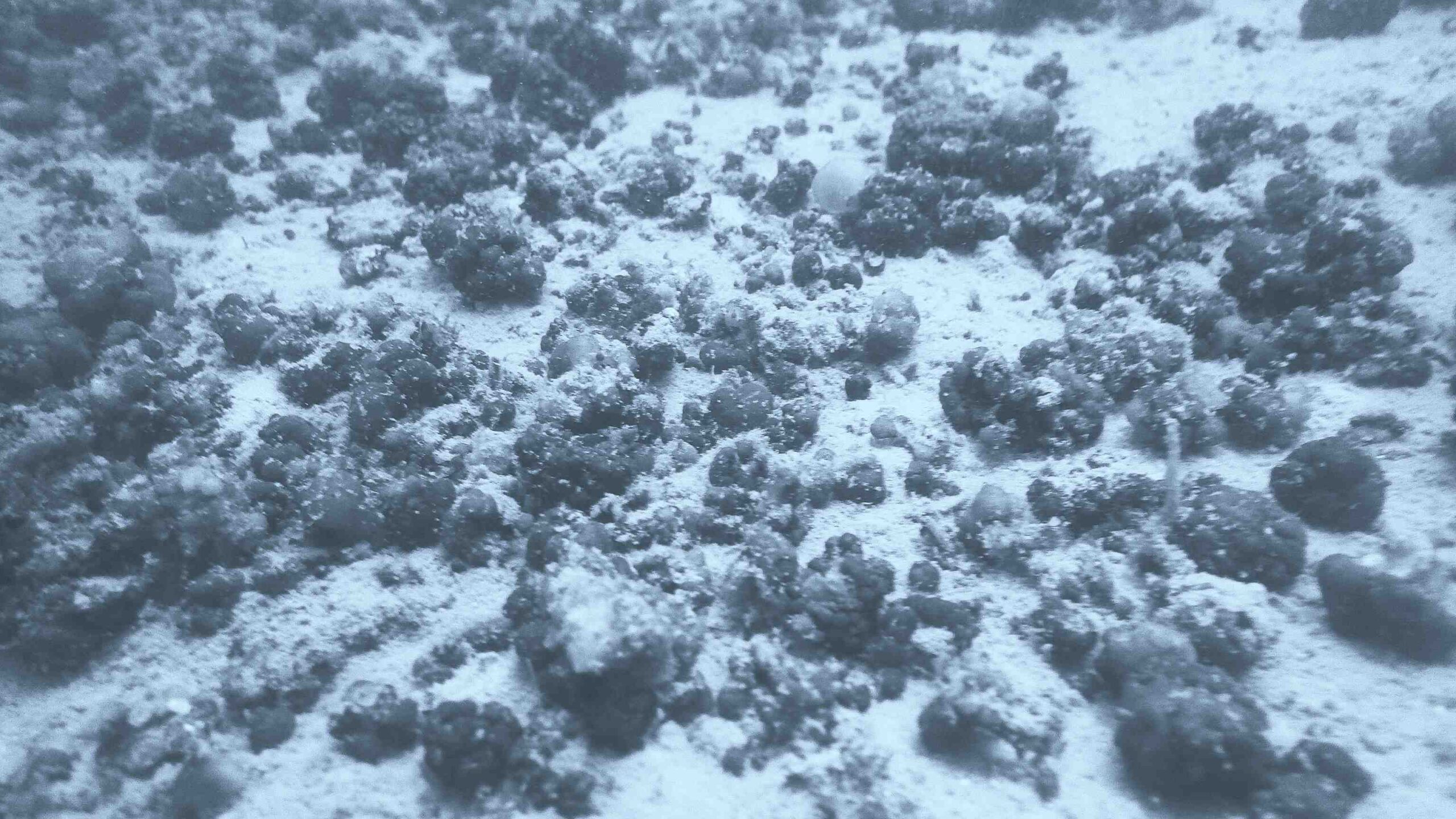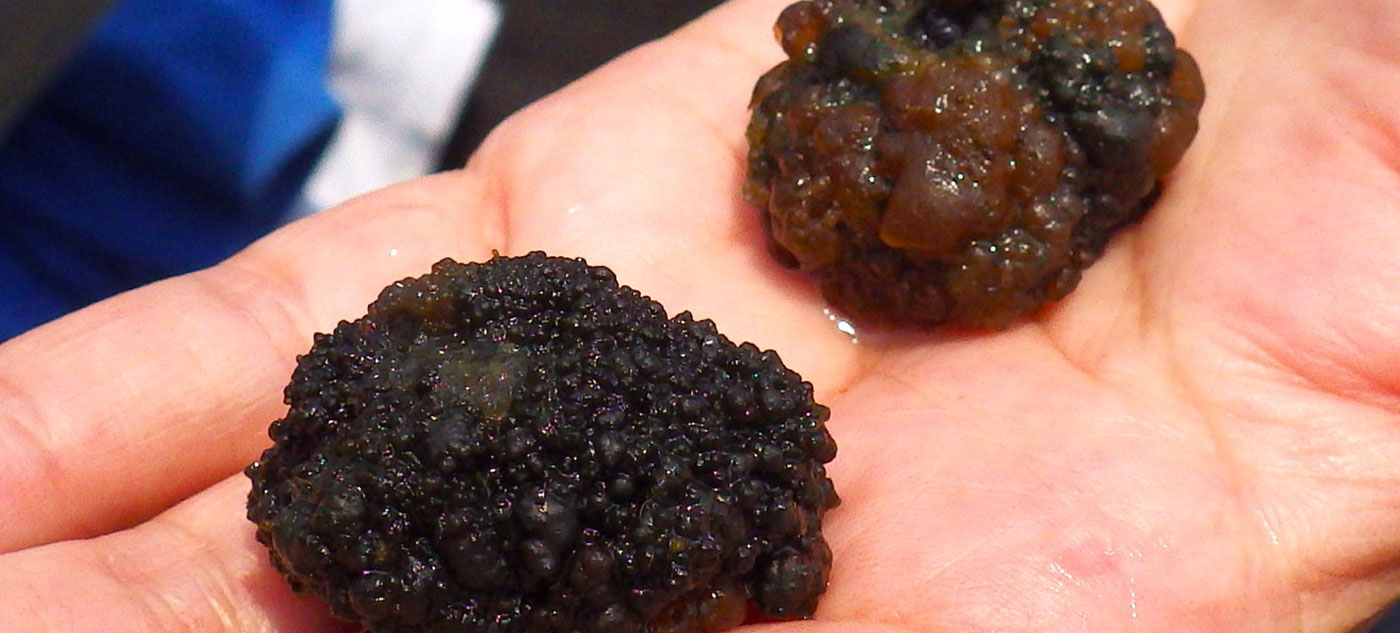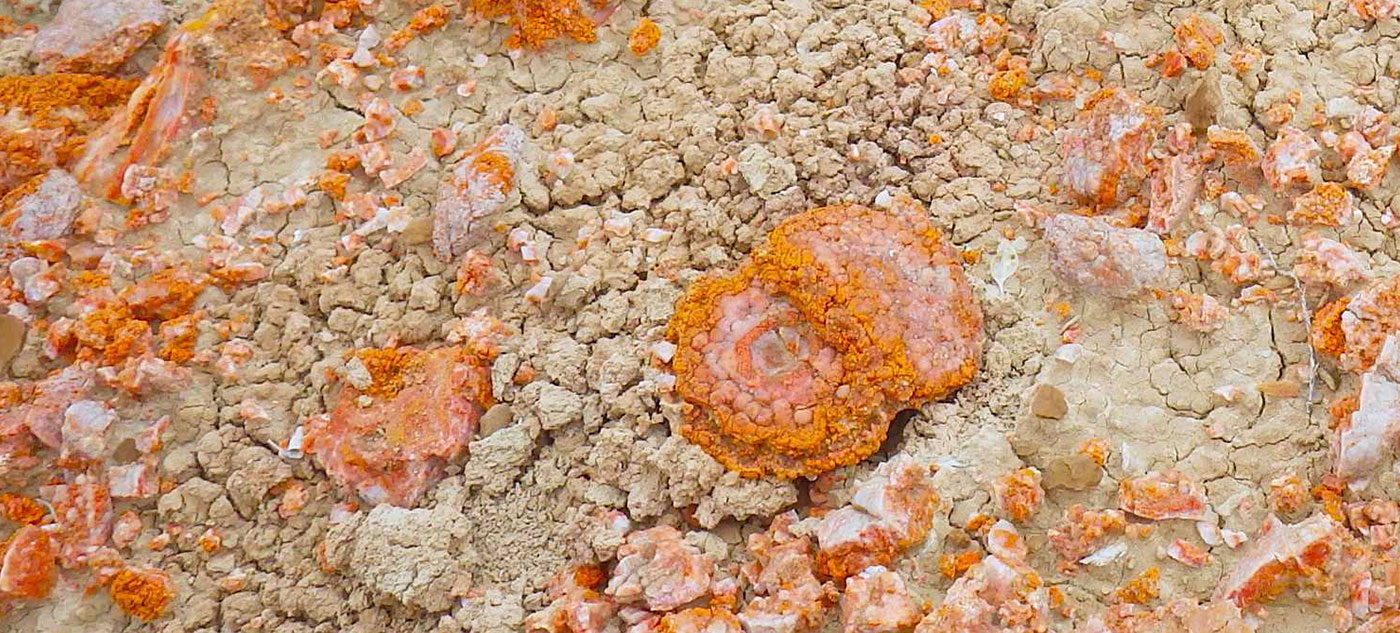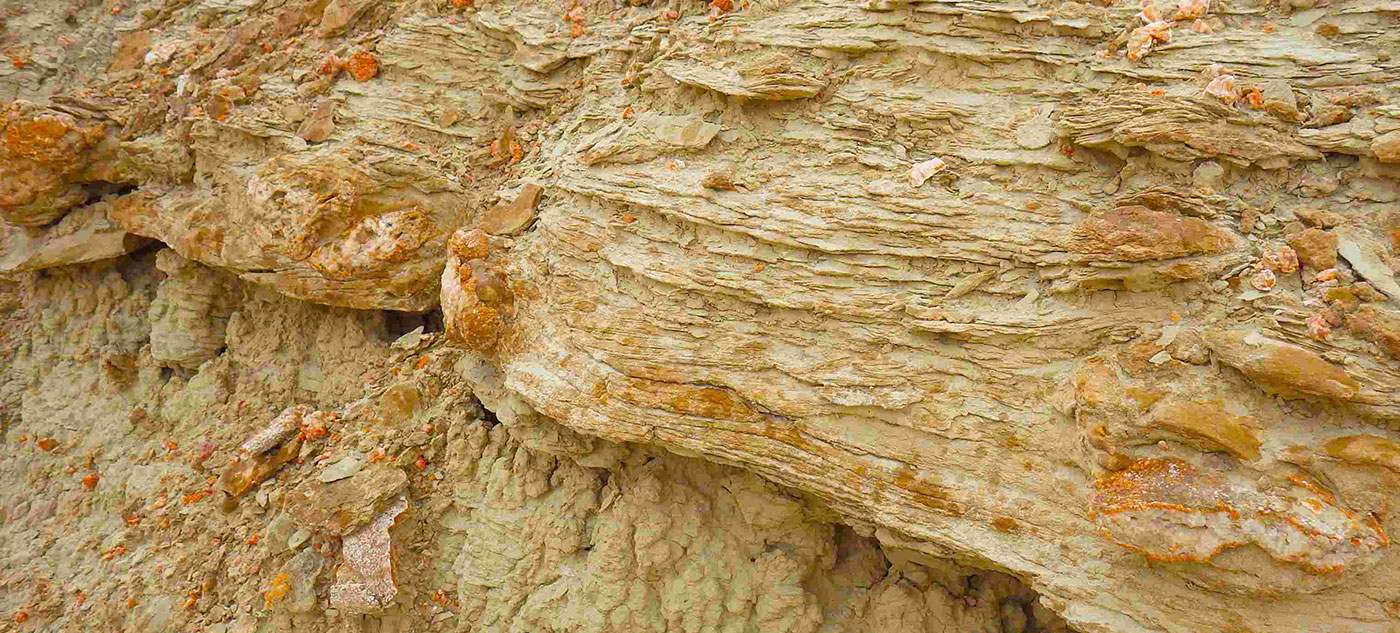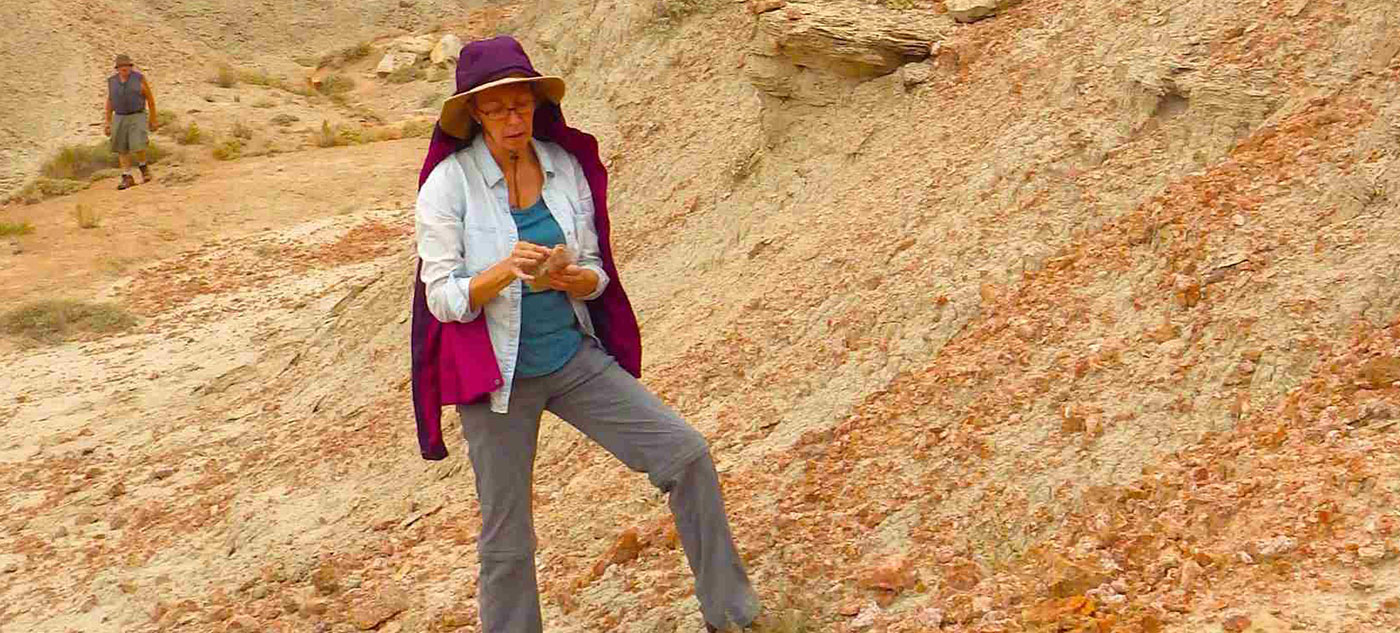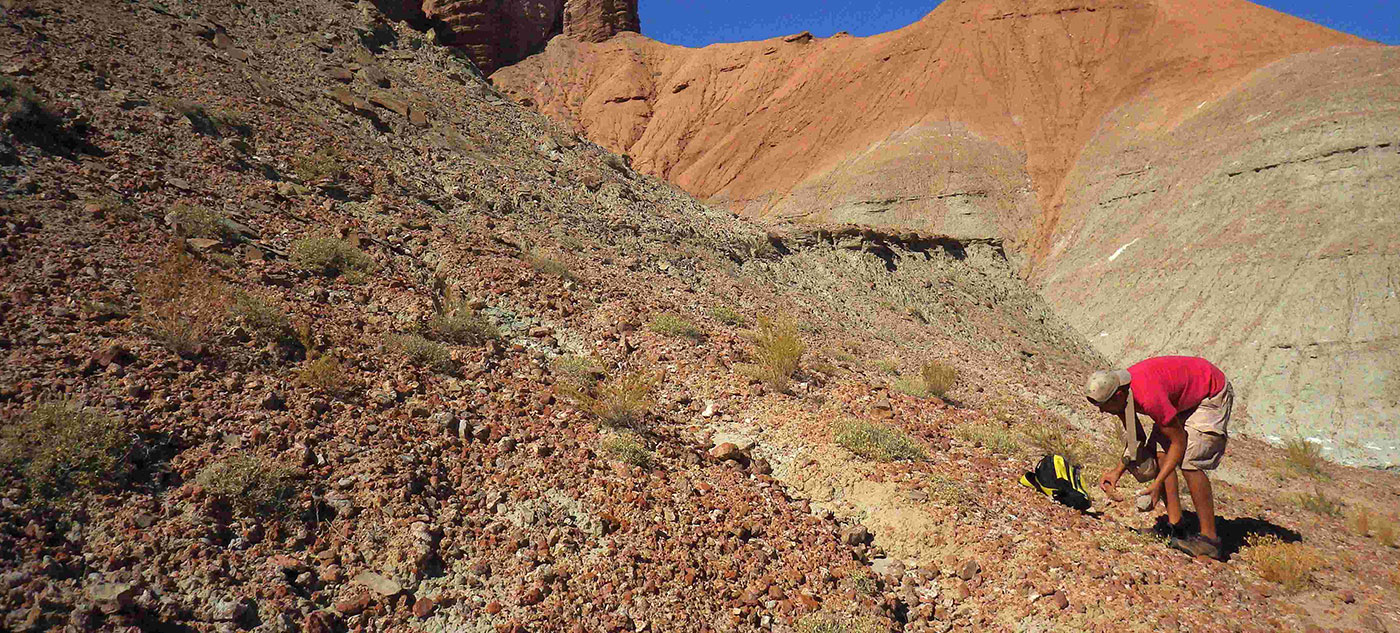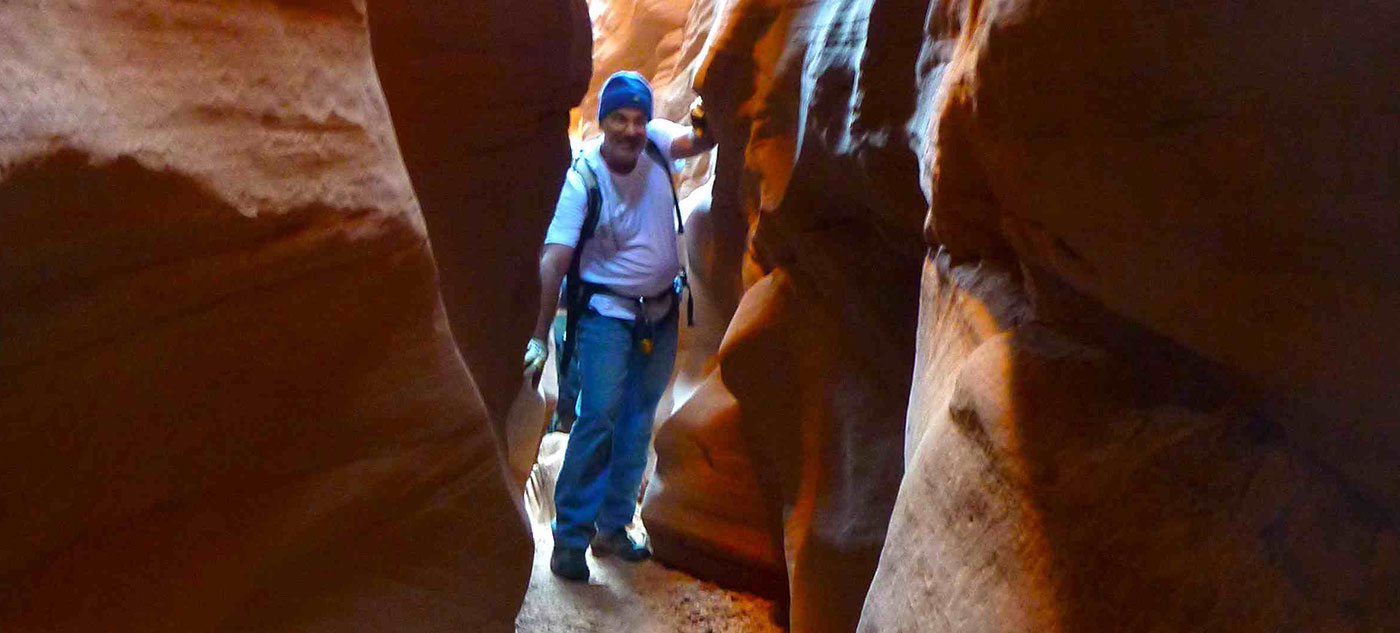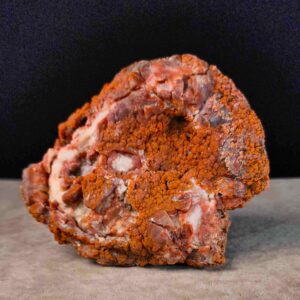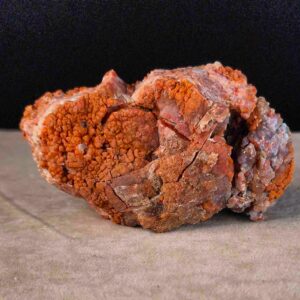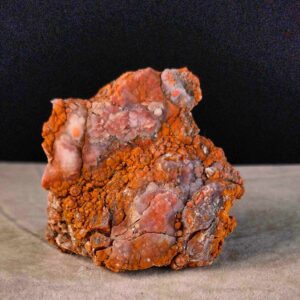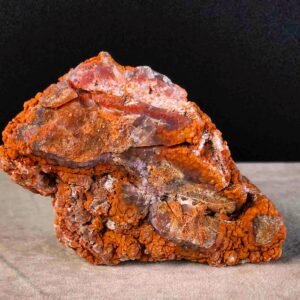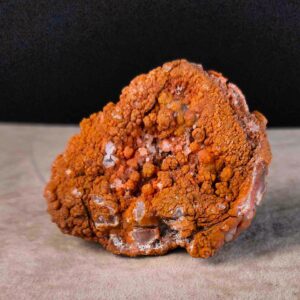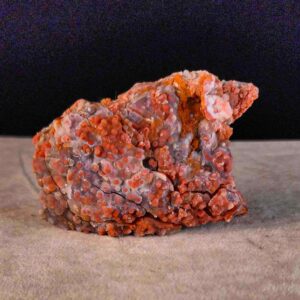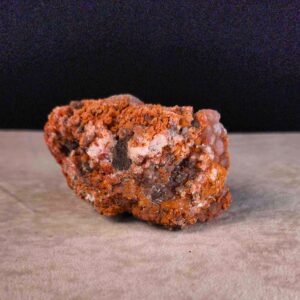Agatized Algae
Swipe the photo above to view more images of the site
The Story
Now that’s a phrase you will not hear anywhere else. Why? Because no one else has ever found these fossils! Here are some of the strangest and most beautiful fossils we’ve ever excavated. We discovered this small site in 2008 by complete accident in the remote deserts of southern Utah while on a canyoneering expedition in the wild. And what a surprise it was! When Vern discovered a few pieces of this material in the bottom of one of the slot canyons we were exploring, we originally thought they were dinosaur coprolites. But further research revealed they are actually colonies of aquatic algae – a discovery that turns out is much rarer. The original algal groups formed knobby, three-dimensional elliptical and spherical nodules on the floor of a shallow sea during Jurassic time, about 165 million years ago. Take a look at the B&W photo here – It shows living algal balls in the bottom of a lake in Ontario, Canada (we took that shot underwater in 2015). Next to it, In Julie’s hand, are two living specimens algal balls from that location. Notice the surface texture of the living forms – they are “bubbly” just like the fossil specimens we’re offering here.
How They Formed
These rare and unique fossils formed when rapidly-accumulating sediment buried the living algal colonies , which then dissolved away and were replaced by quartz.. As the layers piled up, the pressure crushed and distorted most of the spherical algal forms, collapsing their tops downward. In some cases where the crushed ball is still well preserved, there are relic fractures and cracks from the original crushed algae evident. The result is agatized forms with a variety of textures and colors. There’s nothing like these fossils anywhere! As you can see in the site photos, due to the fragility of the original forms, the layers in which these occur yield mostly just fragmentary specimens. Only rarely are the entire algal nodules preserved. NOTE: While some of the agate could lend itself to cutting and polishing into jewelry, we prefer to keep these unique fossil specimens intact.
-
Agatized Algae (AA2)
Notes specific to this specimen: A rare, complete nodule. This specimen is a round, deflated sphere with nice bubbly agate skin all over it. One side is concave, the other convex, indicating the orientation of the original colony in the sediments. Can you guess which way it was oriented? Answer – the convex side was up. As the sediments accumulated and the agal ball deteriorated, the top collapsed. The bottom, meanwhile, was supported by the sediments below allowing it to retain its original shape.
SIZE: 5″x 4″x 2″
NAME: Various species
AGE: Jurassic Period- 165 million years
UNIT: Curtis Formation
SITE: Emery County, Utah
DATE: 2010Documentation: This authentic fossil specimen comes with a Certificate of Authenticity and Origin.
$420.00Agatized Algae (AA2)
$420.00 -
Agatized Algae (AA6)
Notes specific to this specimen: A nearly complete round algal “egg” that retains some of its 3-D character. Very rare. This one has various sections to it which feature different textures and colors, including a nice blueish agate region which is unusual in these specimens.
SIZE: 4″x 2″x 2″
NAME: Undescribed species
AGE: Jurassic Period- 165 million years
UNIT: Curtis Formation
SITE: Emery County, Utah
DATE: 2010Documentation: This authentic fossil specimen comes with a Certificate of Authenticity and Origin.
$320.00Agatized Algae (AA6)
$320.00 -
Agatized Algae (AA4)
Notes specific to this specimen: A complete nodule featuring bullseye and bubblegum agate with a rich variety of textures and colors. The cracks are relics left over from when the original algal ball collapsed in on itself 165 million years ago, making this a very dynamic piece.
SIZE: 4″x 4″x 2″
NAME: Various species
AGE: Jurassic Period- 165 million years
UNIT: Curtis Formation
SITE: Emery County, Utah
DATE: 2010Documentation: This authentic fossil specimen comes with a Certificate of Authenticity and Origin.
$265.00Agatized Algae (AA4)
$265.00 -
Agatized Algae (AA8)
Notes specific to this specimen: Strange shape with a variety of colors. This is one of the more unusual specimens we’ve seen – it contains relic cracks from the collapse of the original structure and a variety of textures and colors. Which end was up? We cannot tell on this one! Zoom in on the bubbly side – it’s awesome!
SIZE: 5″x 3″x 2″
NAME: Undescribed species
AGE: Jurassic Period- 165 million years
UNIT: Curtis Formation
SITE: Emery County, Utah
DATE: 2010Documentation: This authentic fossil specimen comes with a Certificate of Authenticity and Origin.
$220.00Agatized Algae (AA8)
$220.00 -
Agatized Algae (AA7)
Notes specific to this specimen: Small but complete algal ball – a round specimen with great bubblegum agate skin on the upper (convex) side and a nice multicolored carnelian agate underside (convex).
SIZE: 4″x 3″x 2″
NAME: Undescribed species
AGE: Jurassic Period- 165 million years
UNIT: Curtis Formation
SITE: Emery County, Utah
DATE: 2010Documentation: This authentic fossil specimen comes with a Certificate of Authenticity and Origin.
$185.00Agatized Algae (AA7)
$185.00 -
Agatized Algae (AA3)
Notes specific to this specimen: This is a piece of a much larger specimen. While it is not complete, the color and texture of this piece is incredible. Beautiful, multicolored bubblegum agate all over it!
SIZE: 4″x 2″x 2″
NAME: Undescribed species
AGE: Jurassic Period- 165 million years
UNIT: Curtis Formation
SITE: Emery County, Utah
DATE: 2010Documentation: This authentic fossil specimen comes with a Certificate of Authenticity and Origin.
$185.00Agatized Algae (AA3)
$185.00 -
Agatized Algae (AA5)
Notes specific to this specimen: This is a piece of a much larger specimen. While it is not complete, the color and texture of this piece is very interesting. It retains some of the original 3-D shape, which is rare in this preservation environment.
SIZE: 5″x 2″x 2″
NAME: Undescribed species
AGE: Jurassic Period- 165 million years
UNIT: Curtis Formation
SITE: Emery County, Utah
DATE: 2010Documentation: This authentic fossil specimen comes with a Certificate of Authenticity and Origin.
$155.00Agatized Algae (AA5)
$155.00

